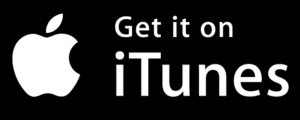Today’s Mission:
Strategize the best use for your qualified retirement accounts as we take your questions on IRAs and 401(k)s. Learn about rollovers and IRA consolidation.
[spp-player url=https://mcdn.podbean.com/mf/web/7nprs2/PODCAST_053_-_MAILBAG_IRAS_AND_401KS_-_JNEANNE_THEUS.mp3 ]
(Click the featured times below to jump forward in the episode)
Strategy Points:
1:32 – Oscar Turned 50 And Asks Whether He Should Contribute More To His 401(k).
- When you turn 50, you can in fact contribute more to your 401(k), and many people do. Most people hit their peak earning years in their 40s and 50s, and they use it as a time to contribute more to their IRAs and 401(k)s. With retirement looming in the future, they use it as a time to make up for lost time with their contributions. These are called “Catch-Up Contributions,” and they’re a wonderful tool. However, whether you should take advantage of them depends on your situation. Think through the size of your accounts and whether you’re planning to retire in five, ten, or fifteen years. All of these factors will affect your investing strategy.
4:37 – Helene Has Seven IRA Accounts And Wonders Whether She Should Consolidate.
- Yes, we’d recommend you consolidate those accounts. Many folks will open multiple accounts with the intention of being diversified, but they end up investing int the same things over and over again. When you aren’t diversified, you set yourself up for failure should the market experience a correction. Your portfolio is most likely overweighted in large-growth U.S. stocks, and as a result, it’s exposed to more risk. Consolidate your accounts, and consider diversifying your portfolio amongst different asset classes according to your risk tolerance level.
9:49 – Nadine Asks Whether To Rollover Her Old 401(k) Account.
- You might hate this answer, but it really depends. Find out whether your particular fund is doing well, or if the market is doing well. If you’re leaving your employer, you have the ability to invest your nest egg in the same funds in a privately managed account. The market is doing well, so if you’re doing well, you’re going to continue to do well in a different account. It’s a bit like going to a burrito restaurant and choosing a white or wheat tortilla. While the wrapper is different, the stuff inside is the same. Furthermore, if you leave an old 401(k) behind, you’re likely to forget about it later in life. With some exceptions, it’s generally recommended to rollover your 401(k) as you leave an employer.
11:45 – Valerie Wants Information On Self-Directed IRAs.
- A self-directed IRA is an IRA account in which you pick what funds you’re going to invest in. You can also invest in gold and real estate (Not Recommended) in those accounts. Basically, you become the director and executor of your investing strategy. This generally isn’t recommended as you can quickly get into trouble when the market takes a hit. People end up chasing returns, trying to time the market, and stock picking instead of following any sort of investing strategy at all. There are also several tax issues associated with a self-directed IRA. In short, if you don’t know what it is, you probably shouldn’t do it. Instead, work with your advisor to develop your investing strategy.
The Grand Plan:
[spp-tweet tweet=”IRAs and 401(k)s can quickly get complicated. As you invest, understand what it means to be properly diversified, and determine what type of account best suits your needs. – Your Financial Mission“]
The Spy Kit:
Click the image to get a free retirement rescue toolkit.

More Intel:
The host: J’Neanne Theus – Contact – Call: (443) 718-6310

Subscribe To The “Your Financial Mission” Podcast:




